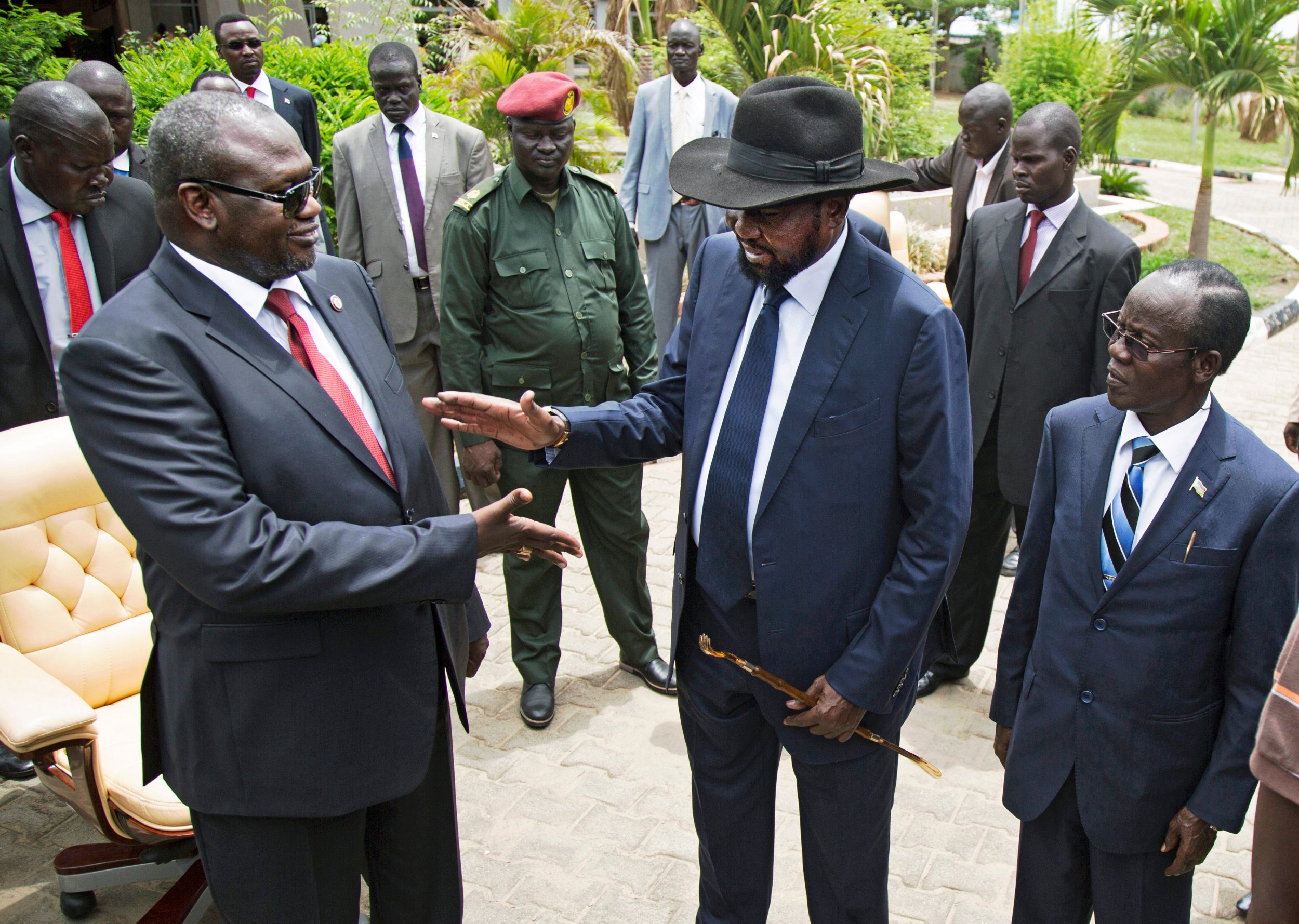
South Sudan is experiencing an "economic crisis," according to the International Monetary Fund (IMF). Inflation is approaching 300 percent, the value of the South Sudanese pound has plummeted by 90 percent in the past six months, and if current trends continue, the country's 2016-17 budget deficit could constitute $1.1 billion, or 25 percent of GDP.
According to South Sudan's political leaders, the solution to this problem is for the IMF to give them more money. The transitional government in South Sudan has appealed for budgetary support to help rebuild the economy.
The answer from Western donors, at present, is a definitive "No." And they have a convincing argument not to cough up: South Sudan's leaders have failed their country by spending more than two years entangled in an unjustified and brutal war driven by their own vested economic and political interests.
When South Sudan formally declared its independence from Sudan on July 9, 2011 , it marked the culmination of a long struggle for freedom lasting more than two decades. Unfortunately, within a very short period of time, the country's post-independence government exhibited symptoms of institutionalized autocracy and corruption, as well as a total disregard for human lives. The crisis of governance turned into an internal political conflict between President Salva Kiir and his Vice President Riek Machar and consequently escalated into the outbreak of civil war in December 2013 . The war has led to the killing of tens of thousands of civilians, widespread raping of women, displacement of over 2 million people, and the breakdown of a fragile economy.
The peace agreement signed in August 2015 is designed to end the war; create a power-sharing government for three years; demilitarize the capital, Juba; establish a hybrid court to hold perpetrators of crimes against civilians accountable; reconstitute the national legislative assembly; and prepare a new transitional constitution, among other things. None of these provisions of the peace agreement have been implemented.
Instead, reports of gruesome acts of killings, harassment and rape against civilians continue to surface, in spite of the formation of the transitional government on April 29. Human Rights Watch reported in May that members of the Fertit ethnic group have been targeted by security forces in villages and neighborhoods around Wau in northwestern South Sudan. The return of Machar to Juba on April 26—despite a week-long delay due to a dispute over how many weapons and soldiers he could bring with him— and the formation of the new government seem to have made no difference yet in the lives of the people. Disappointingly, some members of the new cabinet are believed to be either suspected of committing crimes against humanity or accused of being involved in corruption. The new cabinet can be labeled as dysfunctional at best.
With the economy collapsing and the government unable to discharge basic services to the people, including not paying salaries to civil servants for months, President Kiir is calling for a bailout from Western donors to support the government and to rebuild the country after being one of the instigators of an unprovoked, devastating civil war in the first place. Ironically, Kiir blamed the international community for not being forthcoming in availing the needed funds at the first cabinet meeting held on April 29.
Recently, an IMF delegation visited Juba and met with the leaders of the new government to discuss the worsening economic conditions in the country. The IMF called upon the new government to embark on initiating monetary and fiscal reforms to attract assistance from international donors. Most importantly, the international community expects the government to curb corruption and end unnecessary spending on defense and security.
The former government allocated $850 million to fight the war against the rebels between January and July 2014, while the international community spent billions of dollars on humanitarian assistance to save lives and protect civilians from their own government. It is morally and politically understandable that the international community is utterly opposed to a bailout of the new government without seeing meaningful reforms in the economic and financial sectors and holding those who mismanaged the resources and committed crimes against humanity accountable.
From 2005 until the renewal of conflict in December 2013, the international community spent billions of dollars in development aid to provide critical services to civilians and build the capacity of the government in South Sudan. Sadly, some of these Western-funded development projects such as schools and health clinics were destroyed during the war or occupied by soldiers. This reality poses questions about the genuineness of South Sudanese leaders continuing to appeal for Western aid. It does not seem that those in charge in Juba accept the call for taking responsibility for what they have destroyed in the last two years, let alone the suggestion of using what resources they have to address the country's economic problems.
No doubt, the gateway to South Sudan's recovery rests in the hands of its new government. It can be accomplished through honest self-criticism, full implementation of the peace agreement—in particular the formation of a hybrid court—and monetary and fiscal reforms. Only South Sudan, even with its limited resources, can achieve these goals—not the Western taxpayers.
Amir Idris is professor and chair of the Department of African and African American Studies at Fordham University, New York City.
Uncommon Knowledge
Newsweek is committed to challenging conventional wisdom and finding connections in the search for common ground.
Newsweek is committed to challenging conventional wisdom and finding connections in the search for common ground.
About the writer
To read how Newsweek uses AI as a newsroom tool, Click here.








